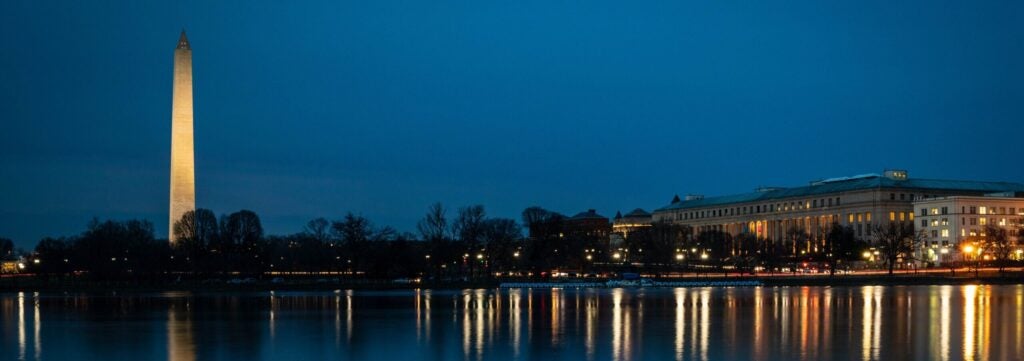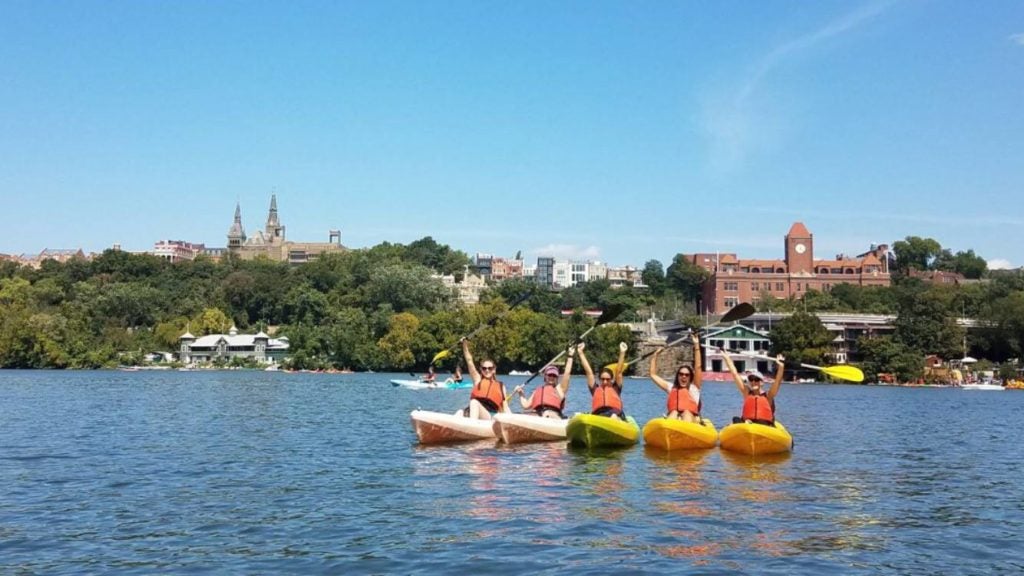Living in Washington, DC
There is no place like Washington, DC. As a graduate student at Georgetown, you can complement academic pursuits with unmatched professional and personal growth.

Professional Opportunities
As the nation’s capital and a global political center, Washington, DC is a melting pot of individuals and organizations. For these reasons, the city is considered a major hub for global health and development.
Countless government agencies, non-profit organizations, and businesses have headquarters or major representation here. This saturation of institutions provides enormous opportunity for graduate students – particularly those pursuing a degree in global health.
Because most of our program’s courses are in the evenings, students can pursue full- or part-time internships and jobs with these organizations. Additionally, think tanks, federal agencies, IGOs, and other groups routinely host panel discussions, lectures, and other events that are optimal for networking. We find that the students who regularly engage with global health and development organizations here in DC are well-positioned to land a job after graduation.
Here is a sampling of global health and development organizations with headquarters and major representation in the Washington, DC area:
Personal Opportunities
DC is a vibrant city that brings together motivated and highly-educated individuals from across the country and the world. In fact, most of our students move to DC specifically for graduate school!
There is so much to explore outside of work and classes! Washington is famous for its expatriate communities – and particularly their fabulous cuisines. DC is also known for its world-class museums and galleries (many of which do not charge admission), performance venues, special events (e.g., presidential inaugurations, Fourth of July, cherry blossom festival, etc.), and exciting night life.
Though DC is a major urban center, a visitor can be easily fooled. The city is nestled between two rivers that feed into the expansive Chesapeake Bay – kayaking along the Georgetown waterfront is a favorite pastime of students and faculty alike. Rock Creek Park is a massive, 2,000-plus-acre, forested national park in the heart of Washington that boasts over 32 miles of hiking trails. The Chesapeake & Ohio Canal, which concludes in Georgetown, parallels the Potomac River and offers hiking and biking trails for over 180 miles to the west. The Atlantic Ocean and Shenandoah Mountains are each two hours by car, offering a remarkable range of outdoor adventures.
At Georgetown University, you are not only embedded in a historic, lovely neighborhood, but also integrated into a community of learners. Rooted in Jesuit traditions, Georgetown students are united in their passions for learning and service. M.S. in Global Health candidates have the best of both worlds: they forge deep relationships with their classmates (each annual MSGH cohort has roughly 25 students) while engaging with the several thousand-strong graduate student population on-campus. Opportunities abound through intramural sports, graduate student government, religious life, culinary clubs, political activist groups, and much more.
Transportation
Washington, DC is a large city, but Georgetown students are connected through a robust transportation network. The University’s free shuttle service runs frequently (up to every ten minutes during peak hours) from campus to – and from – the Dupont Circle and Rosslyn Metrorail stations. Additional shuttles run to and from Chinatown, as well as a loop around the entire city of Arlington, Virginia – where many graduate students live. Furthermore, Metrobus and Circulator operate several lines very close to campus, and rideshare services (e.g., Uber, Lyft, Via, etc.) are also readily accessible close to the global health program’s main building (St. Mary’s Hall).

